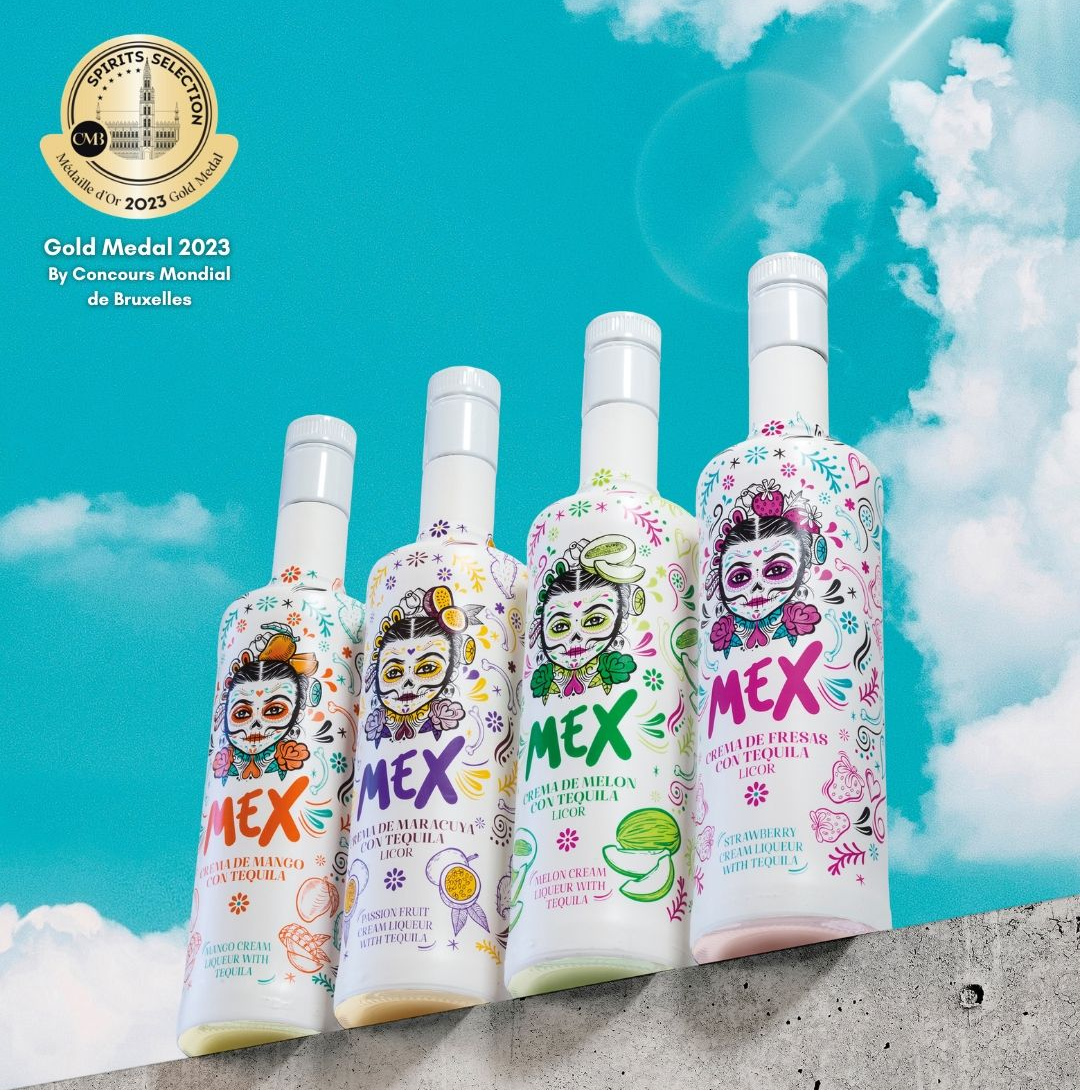C R T
GOLD MEDAL BY COUNCOURS MONDIAL DE BRUXELLES
Quality recognised by the prestigious international competition Concours Mondial de Bruxelles, which has awarded the Gold Medal to MEX Mango, acknowledging its sensory excellence and exceptional quality.
This distinction establishes MEX Mango as a benchmark within the universe of tequila creams, thanks to its balanced fusion of tropical notes and the unmistakable character of tequila.
Designed for those who value originality and seek authentic experiences, MEX Mango not only seduces with its flavour: it is now also endorsed by one of the most relevant awards in the sector. A medal that anticipates everything this cream has to offer.

What Is The CRT?
The Tequila Regulatory Council (CRT) is the institution that guarantees what
reaches your glass is authentic tequila. Without their endorsement, it is not
tequila.
All our tequilas carry the CRT guarantee.
Guardians of Authenticity
The CRT protects the Tequila Denomination of Origin, ensuring that only blue Tequilana Weber agave is used in its production and that it is cultivated only in authorised regions of Mexico.
Quality Certification
It supervises and certifies each stage of the production process, from facilities to final product, guaranteeing high quality standards and compliance with official regulations.
Denomination of Origin
The CRT grants the "Tequila" distinction exclusively to beverages produced within the zones recognised by Mexican law, preserving their authenticity and international prestige.
Preservation of Tradition
It promotes traditional and sustainable practices in the tequila industry, fostering respect for the environment and local culture.
Why is it Important?
Because it protects the essence of tequila as a cultural symbol of Mexico, ensuring its quality, origin and heritage.
Tequila Production
Tequila is a beverage of ancestral origin produced exclusively from the blue variety of Agave tequilana Weber, cultivated in authorised regions of Mexico. The process begins with the cultivation of agave, which requires between 7 and 9 years to reach optimal maturity, at which point the "jima" is performed, extracting the "piña" or core of the plant.
These piñas undergo a process of thermal or enzymatic hydrolysis, where complex carbohydrates are transformed into fermentable sugars. The correct execution of this phase is key to avoiding losses and preserving the compounds that contribute flavour and aroma.
Subsequently, the sugars are extracted from the agave fibre using mills or diffusers, and the must is prepared. Depending on the category, tequila can be 100% agave or include up to 49% sugars from other sources, always respecting established quality standards.
In the fermentation stage, yeasts transform sugars into alcohol and compounds that will define the sensory profile of the product. This phase requires precise control of temperature, pH and other factors that ensure efficient fermentation.
The fermented must undergoes double distillation, separating unwanted components and concentrating the purest alcohols. The result is a tequila that can be bottled directly (blanco), blended (joven) or aged in oak barrels.
The maturation, which can last from two months to more than three years, gives rise to reposado, añejo and extra añejo varieties. During this period, the tequila acquires aromatic complexity, colour and smoothness thanks to the interaction with the wood.
Each stage of the process is designed to preserve the authenticity of tequila, guaranteeing a beverage with unparalleled identity, character and quality.


